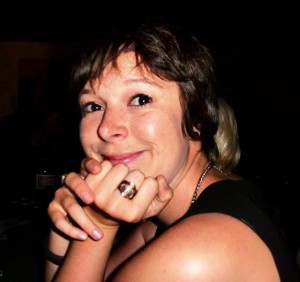Posts Tagged ‘genocide’
Perhaps genocide be stopped?
By Jonathan Power
July 5th 2016.
After Hitler’s Final Solution – the elimination of the Jews – came Cambodia’s Khmer Rouge and the murder of two million of the country’s people. After that came Rwanda when at least a million of the Tutsi people were slaughtered en masse by the Hutus. More recently we have seen large-scale killing in Sudan and now in Syria. The latter two can’t be called “genocide”- the attempt to totally eliminate a people – but the first three certainly were.
However bad that sounds the evidence is, whether it be genocide or mass slaughter, there has been significantly less of it during the last 50 years, despite the fact that most of us recall the horrors – thanks to the TV news producers’ mantra “if it bleeds it leads” – not the steady lessening of its frequency.
We are in the middle of a long-term downward decline in mass violence. Both frequency and intensity are much reduced. Even the recent increase in violent instability in the Middle East, North Africa, the Central African Republic, northern Nigeria and southern Sudan has not reversed this overall decline.
In his landmark book, “The Better Angels Of Our Nature” Harvard professor, Steven Pinker, writes that this decline in atrocities is part of a broader and longer decline in violence. He attributes that trend to changes in cultural and material conditions that increasingly favour and reward our cooperative instincts over our more violent ones. Read the rest of this entry »
The Semantics of struggle
By Richard Falk
Words Against the Grain
While reporting to the UN on Israel’s violation of basic Palestinian rights I became keenly aware of how official language is used to hide inconvenient truths. Language is a tool used by the powerful to keep unpleasant realities confined to shadow lands of incomprehension.
Determined to use the rather modest flashlight at my disposal to illuminate the realities of the Palestinian ordeal as best I could, meant replacing words that obscure ugly realities with words that expose as awkward truths often as possible. My best opportunity to do this was in my annual reports to the UN Human Rights Council in Geneva and the General Assembly in New York.
My courageous predecessor as Special Rapporteur, John Dugard, deserves credit for setting the stage, effectively challenging UN complacency with language that looked at the realities lurking below the oily euphemisms that diplomat seem so fond of.
Of course, I paid a price for such a posture as did Dugard for me. Your name is added to various black lists, and doors once open are quietly closed. If the words used touched enough raw nerves, you become a target of invective and epithets. In my case, this visibility meant being called ‘an anti-Semite,’ even ‘a notorious anti-Semite,’ and on occasion ‘a self-hating Jew.’
Strong Zionist pressures have now been brought to induce legislative bodies in the United States to brand advocacy of BDS or harsh criticism of Israel as prohibited form of ‘hate speech.’ In April of this year pressures broad to bear by the British Jewish Board of Deputies led the University of Southampton to cancel a major academic conference on the Israel/Palestine conflict.
In relation to Israel’s treatment of the Palestinians, the clarifying/offending words are ‘apartheid,’ ‘ethnic cleansing,’ ‘settler colonialism,’ and ‘annexation.’ The UN evades such invasions Read the rest of this entry »
Explanations of the popular participation in the Rwandan genocide
By Mira Fey
Book Review
Lee Ann Fujii,
Killing neighbors: Webs of violence in Rwanda
Cornell University Press 2011
Previous research on driving forces of the genocide
Questions of intimate mass violence in ethnic killings are especially puzzling for researchers investigating political violence. Various approaches examine reasons for popular participation in the relatively recent genocide in Rwanda which exhibited especially brutal killings of acquaintances such as neighbors by regular villagers.
Some of these approaches link ethnic violence with structural violence by looking at cultural and historical particularities that allegedly led to distinct ethnic identities and a society divided along ethnic lines that can be equated with class divisions (Mamdani, 2001). Others focus on the role of the state and the hierarchical organization of Rwandan society as facilitating conditions for mass participation in the genocide (Prunier, 1995).
According to Straus who conducted one of the most extensive field studies in post-genocidal Rwanda, these perspectives portrayed the genocide as “a state-organized, planned extermination campaign that served elite interests and drew on constructed ethnic categories” (2004, 86), thereby shifting the analytical focus on macro-level examinations and elite actions away from the original puzzle of popular participation. Consequently, Straus’ own research focuses on local-level dynamics of the Rwandan genocide. Read the rest of this entry »


